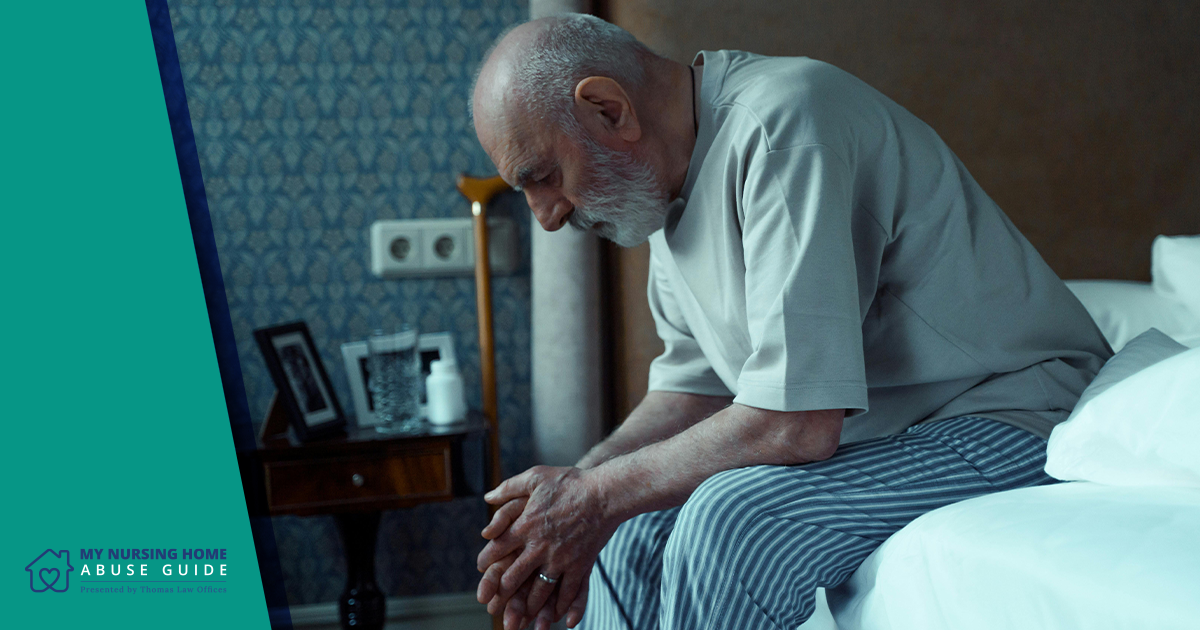Your Guide to Nursing Home Abuse & Prevention
Millions of elderly adults live in nursing home facilities.
Every one of them deserves to feel safe, protected, and respected.
Millions of elderly adults live in nursing home facilities.
Every one of them deserves to feel safe, protected, and respected.

There is no discrimination when it comes to taking advantage of older adults. Those incidents occur regardless of a person’s race, sex, religion, or ethnic background. Typically, the age at which mistreatment is considered elder abuse begins at 60. Data collected by the National Council on Aging finds that one in 10 Americans who are 60 or older have experienced some form of elder abuse. Sadly, only one in 24 of those incidents ever get reported.
That abuse can come in many forms, including emotional, psychological, physical, financial, sexual, and general neglect. In your role as an advocate for your loved one, you have to be on constant alert to spot the signs of abuse.
The U.S. Department of Justice sets the standard for the definition of abuse and who would be considered an eligible adult. The DOJ defines abuse as “the infliction of physical, sexual, or emotional injury or harm including financial exploitation by any person, firm, or corporation and bullying.”
As for the age group, they define that as “a person sixty years of age or older who is unable to protect his or her own interests or adequately perform or obtain services which are necessary to meet his or her essential human needs.”
Data collected by the National Library of Medicine found that older adults between the ages of 60 to 69 suffered the highest number of abuse with the frequency of incidents in those from the survey at 54 percent. In the 70 to 79 age group, that number dropped to 33 percent.
However, the opposite was found with financial abuse. According to the Consumer Financial Protection Bureau, older adults between 70 and 79 lost more money from theft. Those losses are on average $45,300. That number goes up when the victim knows the person who is stealing from them.
Elder abuse often happens to the most vulnerable such as residents with mobility issues. Often, mistreatment occurs during daily tasks such as grooming, bathing, dressing, and taking prescription medication. There is also a concern for the nursing residents who are afflicted with memory or dementia. Those might be the seniors who aren’t capable of reporting the abuse.
Whenever you visit your loved one, you always check in with them to see how they are doing. The nature of being taken advantage of often manifests in the victim’s inability to vocalize what has happened. You might initially notice that they have become withdrawn or are especially agitated.
In addition to the emotional issues, you might also notice obvious physical signs of trauma, such as rocking back and forth. You should also carefully check for unexplained bruises, cuts, or pressure marks. There are also preventable conditions like bedsores that would indicate abuse. Anyone who develops that type of injury means they’ve been confined to one position for a long time. That should not be happening in a full-time care facility.
It would help if you also made a note of the living environment. Does it look clean? Is your loved one’s appearance messy? Is their hair unwashed and their clothes dirty? Those could also be signs of abuse.
Outside of the potential for physical and emotional abuse, there could also be issues with your loved one’s finances. You should set up alerts on all the banking, checking and credit card accounts that are still in your family member’s name. They could also be at risk for identity theft. Blocking spam calls from their phone will help reduce the risk of that type of fraud.
If you think your loved one is being abused in any way, it is essential that you act immediately. You should first put the facility on notice and file an official report. You might also have access to independent adult protective service agencies to discuss the matter with. It might also help to have your choice of physician or therapist talk with your family member. They might be more comfortable discussing the issue with those medical professionals.
The moment you suspect neglect, you should act. In some incidents of abuse, there could be criminal charges. There might also be a need to seek out a remedy with the support of experienced legal counsel. The important thing to remember is that the abuse is not their fault.
This website was created and is maintained by the legal team at Thomas Law Offices. Our attorneys are experienced in a wide variety of nursing home abuse and neglect cases and represent clients on a nationwide level. Call us or fill out the form to the right to tell us about your potential case. We will get back to you as quickly as possible.
866-351-2504